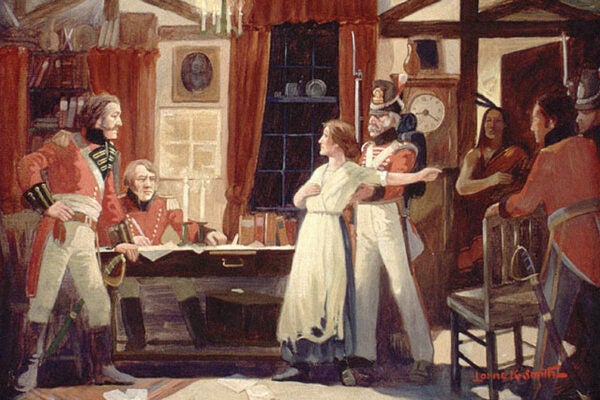Men like Martin Luther King, Jr. have become symbols of the rhetorical power of the Civil Rights Movement, but one of its most persuasive speakers often goes unnoticed. LaVerne Gyant and Deborah F. Atwater explored the rhetorical and ethnic legacy of Septima Poinsette Clark, an educator and activist who has been called the “queen mother of the Civil Rights Movement.”
The daughter of a slave, Clark was born into a family that placed a high premium on education. All eight Clark children graduated from high school, and two, including Septima, got college degrees. This educational focus rubbed off: Clark became a teacher and fierce advocate for literacy, education, and social progress.
Life as a black teacher in the segregated South was not easy. She found herself thrust into community politics and civil rights struggles. Her involvement veered from the basic to the complex, teaching people how to read on the one hand, and teaching people how to resist oppression and discrimination on the other. She became involved in a campaign to get Charleston officials to allow black schoolteachers to teach within the school district. When the plan succeeded, she began to agitate alongside the NAACP for equal pay despite widespread opposition to the organization.
Through the years, Gyant and Atwater wrote, Clark gained a reputation as truthful, calm, and optimistic. She also had something else in her arsenal: a “persuasive speaking ability” that helped her not only resist oppression within her community, but helped encourage her peers to agitate for change. She did so despite losing her job, facing jail time, and sometimes being silenced by the male-dominated movement.
This power reached its full potential in the 1960s, when Clark began establishing Citizenship Schools throughout the South. These schools taught basic literacy to black students so that they could not only legally register to vote, but also pass the onerous literacy and citizenship tests imposed by Jim Crow legislatures. She was able to speak to groups that “could be hostile and recalcitrant” despite her initial fear of public speaking.
Convinced of the worth of her views, Clark used her voice to further the Civil Rights Movement and fight for a more prominent role for women within it. “In many instances,” Gyant and Atwater wrote, “she spoke out against numerous injustices in public arenas that were, heretofore, strictly off-limits to women.” Though Clark often goes unrecognized, her ability to unify, motivate, and empower others through her words should never be forgotten.







